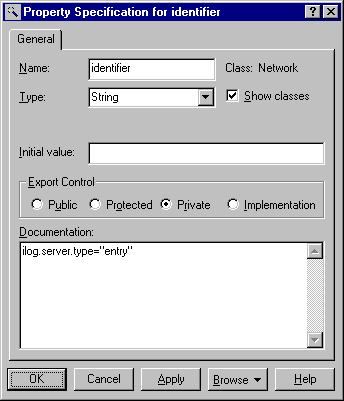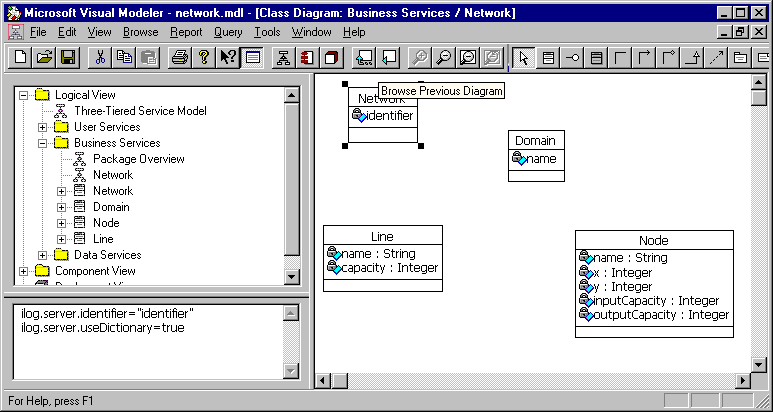Defining Attributes
You will now add some properties to each class. To do this, you will use the class inspector.
1. Double-click on the Network class to open the class inspector and select the Properties tab.
2. Using the right mouse button, insert a new property named identifier.
3. Double click on it to open the Property Specification inspector.
4. Select String from the Type menu.
5. Because we want this property to be an Rogue Wave® Server entry, add the following tag in the Documentation editor of this property:
ilog.server.type="entry"
Figure 7.2 Property Specification Inspector
6. Click OK in the Property Specification inspector, then again in the class inspector.
7. Repeat steps
step 1 to
step 6 to define the following attributes in the other classes of the
Network model:

Class
Domain name
name: String

Class
Node name
name: String
 x
x: Integer
 y
y: Integer
 inputCapacity
inputCapacity: Integer
 outputCapacity
outputCapacity: Integer

Class
Line  name
name: String
 capacity
capacity: Integer
Specify each property as Rogue Wave Server entries, except inputCapacity and outputCapacity, which must be defined as derived attributes using the following tag:
ilog.server.type="derived".
You must now specify a computation method for each derived attribute. This task is described in
“Defining Computation Methods”..
At the end of this task, you obtain the following model:
Figure 7.3 Network Object Model with Completed Classes
The next step consists in defining the relations between the classes fo your model.
Version 5.7
Copyright © 2013, Rogue Wave Software, Inc. All Rights Reserved.


